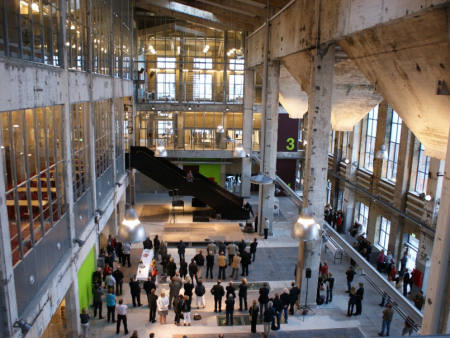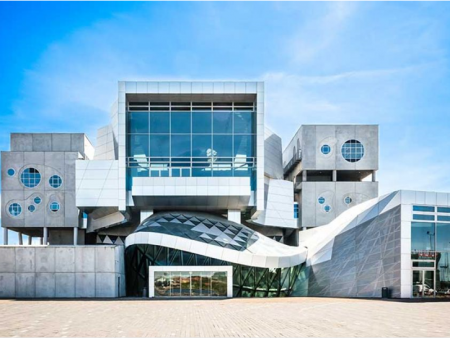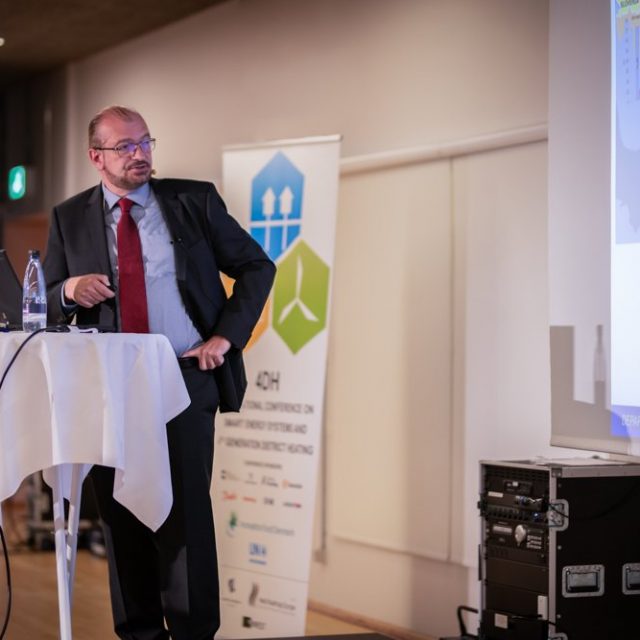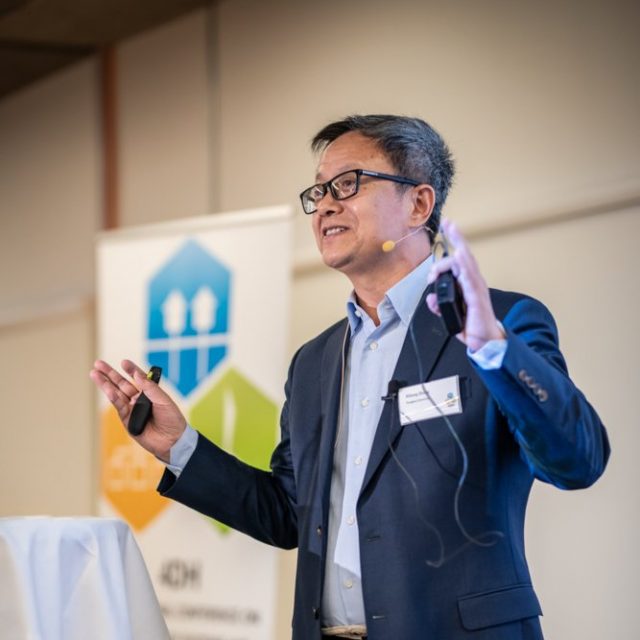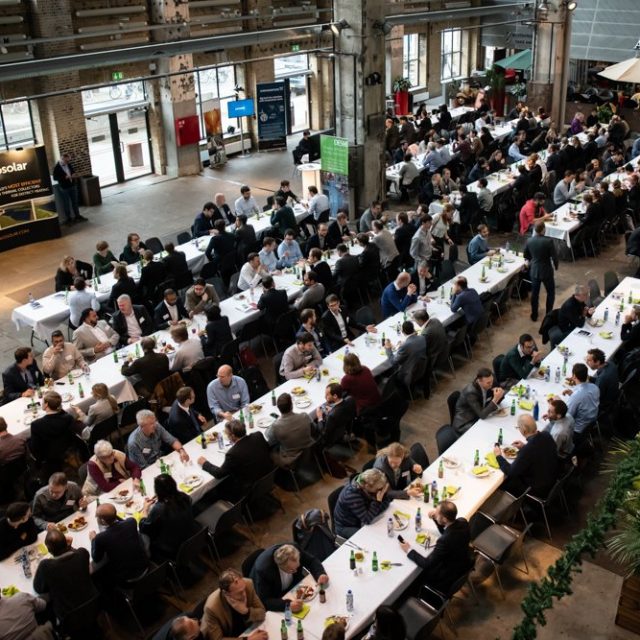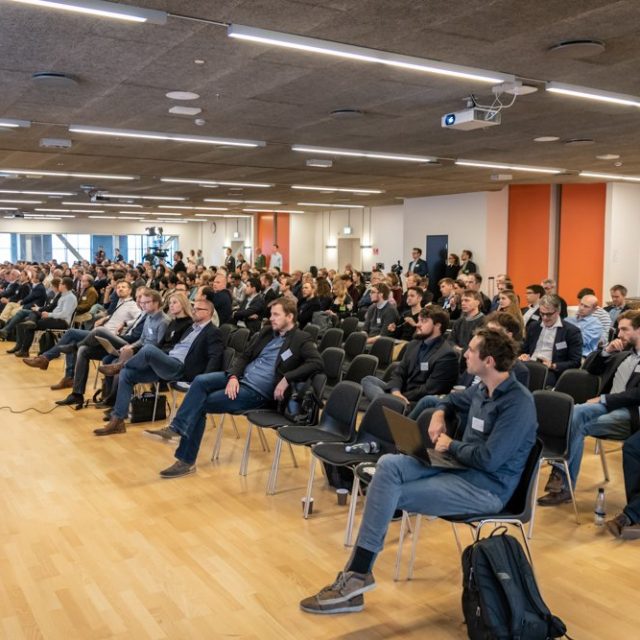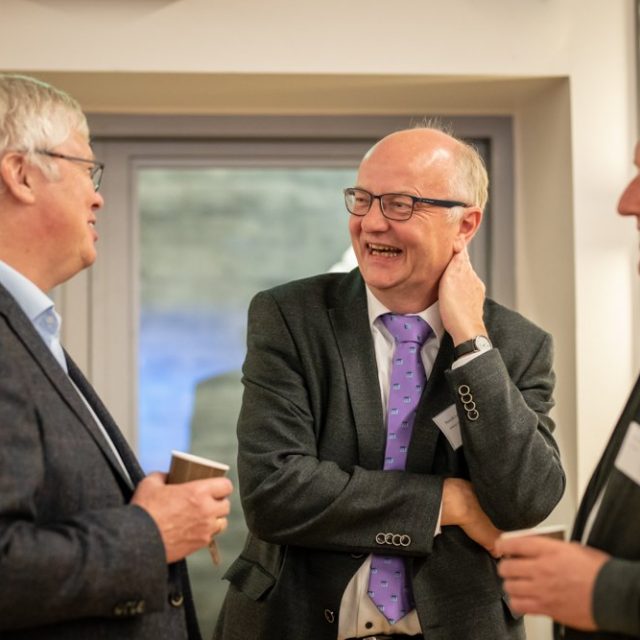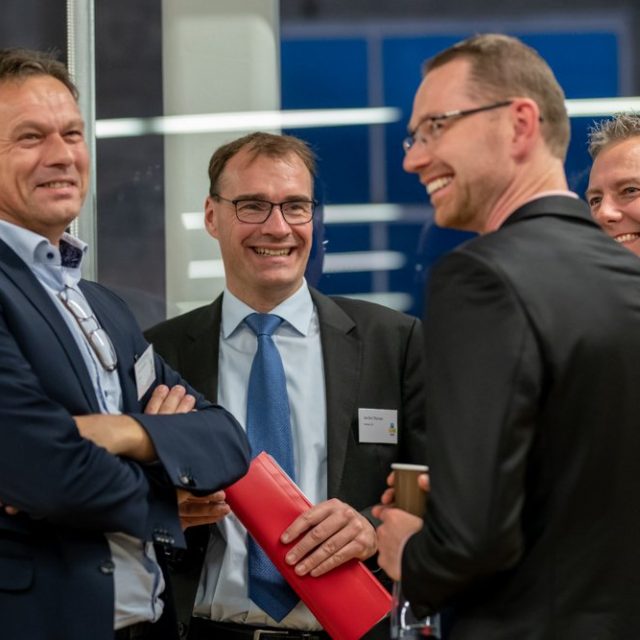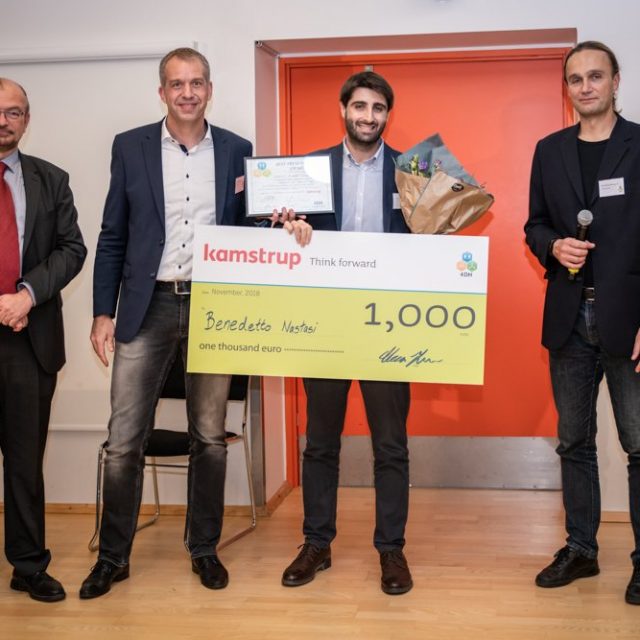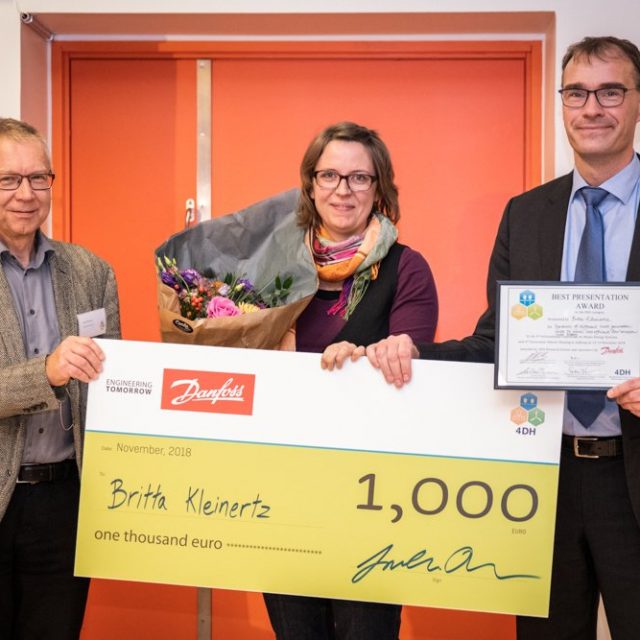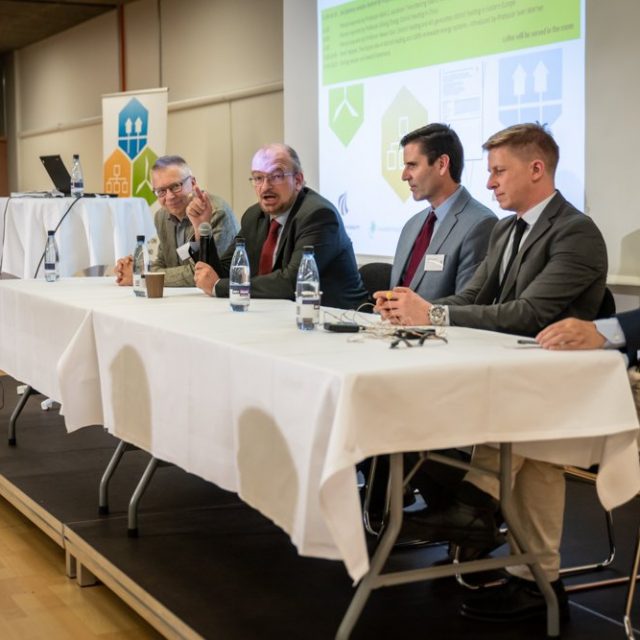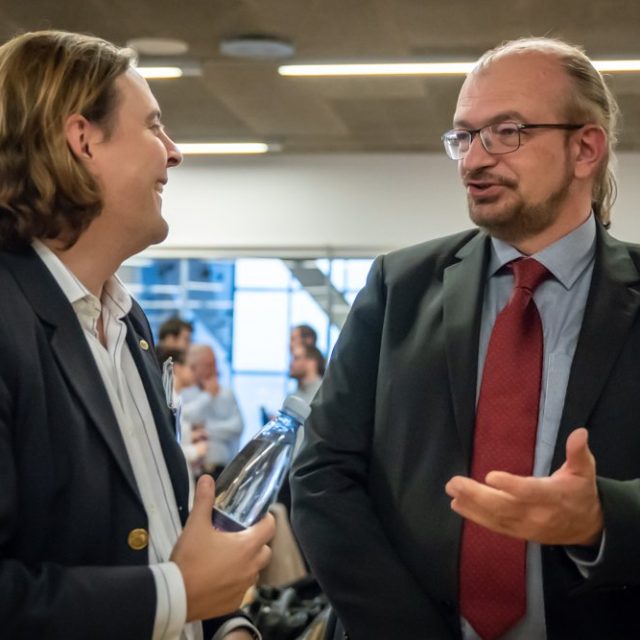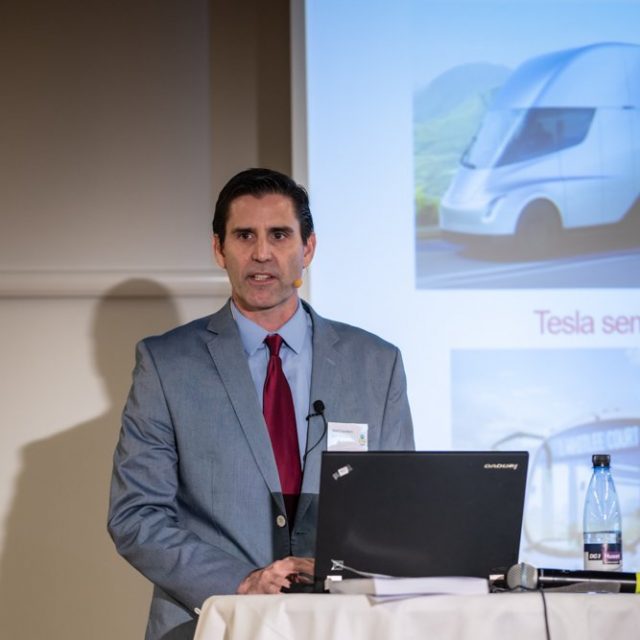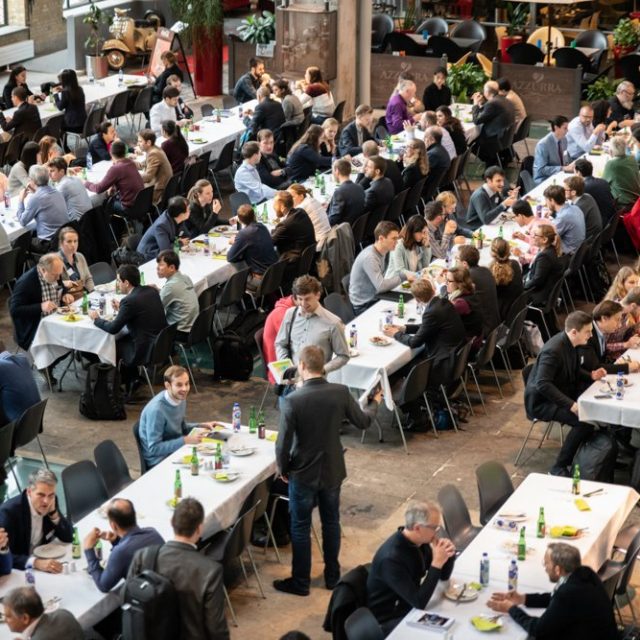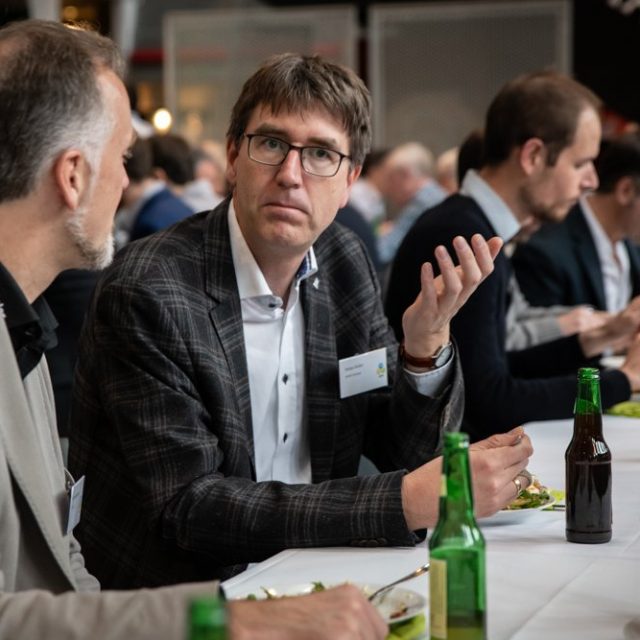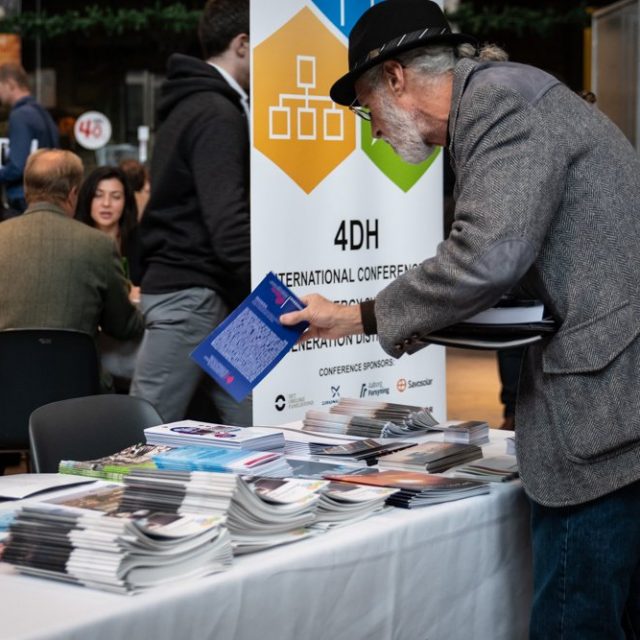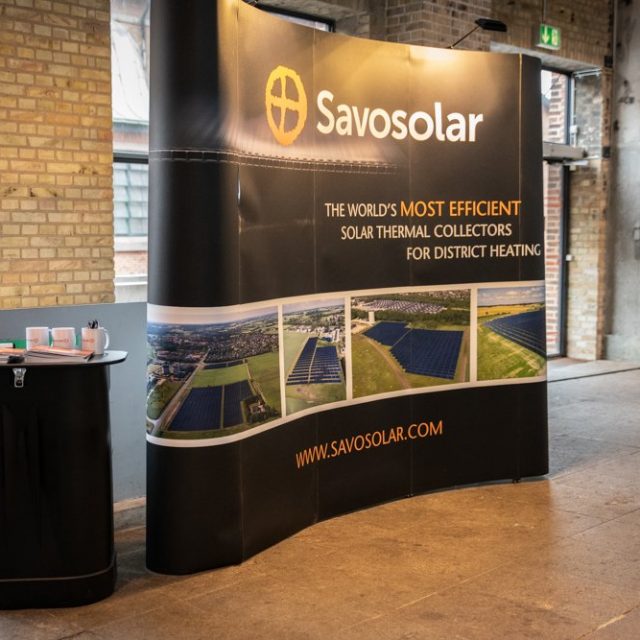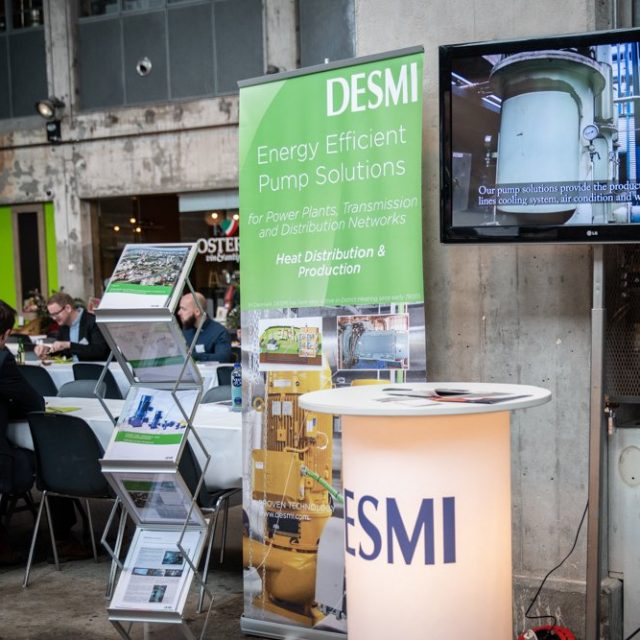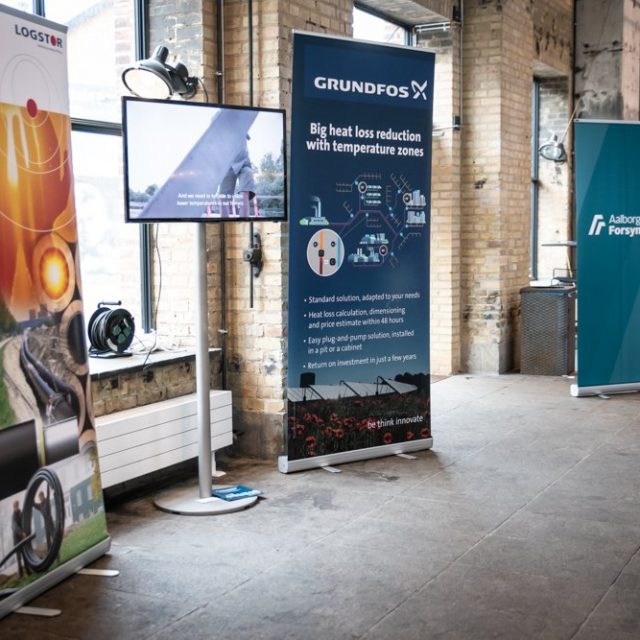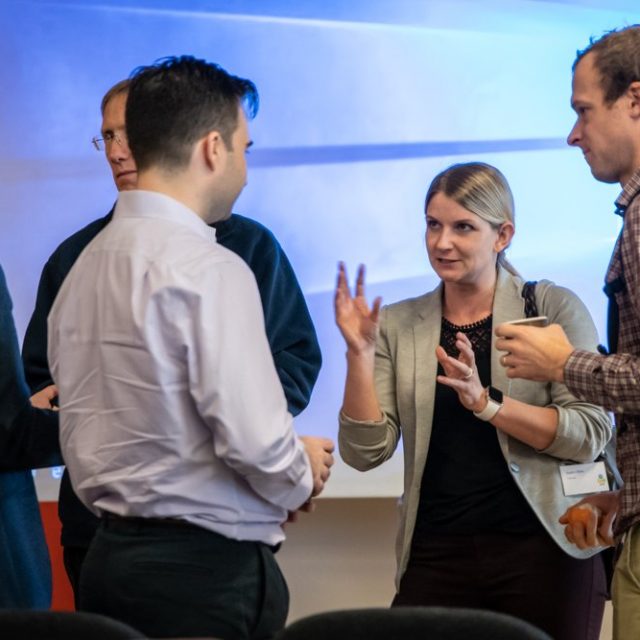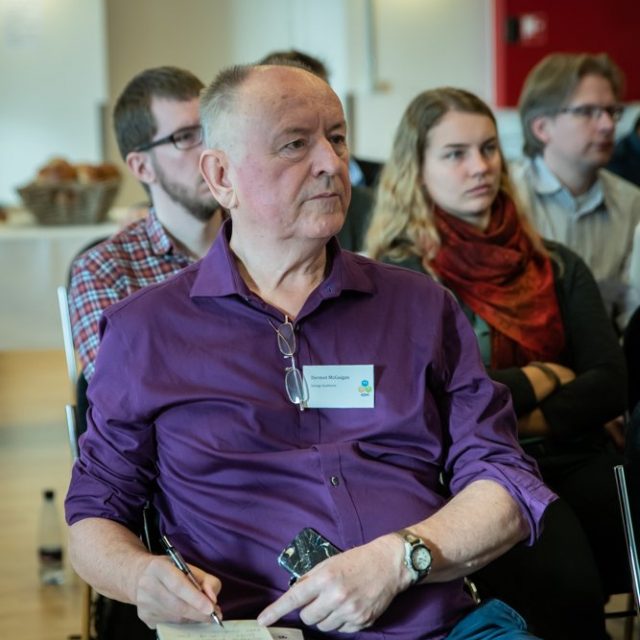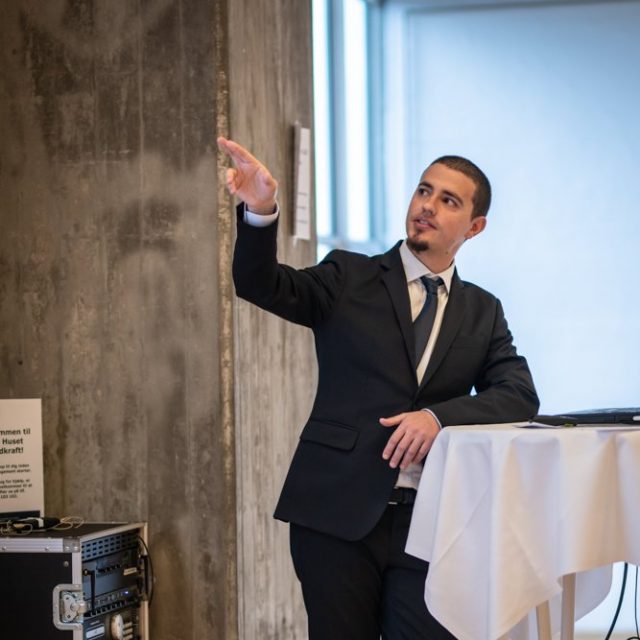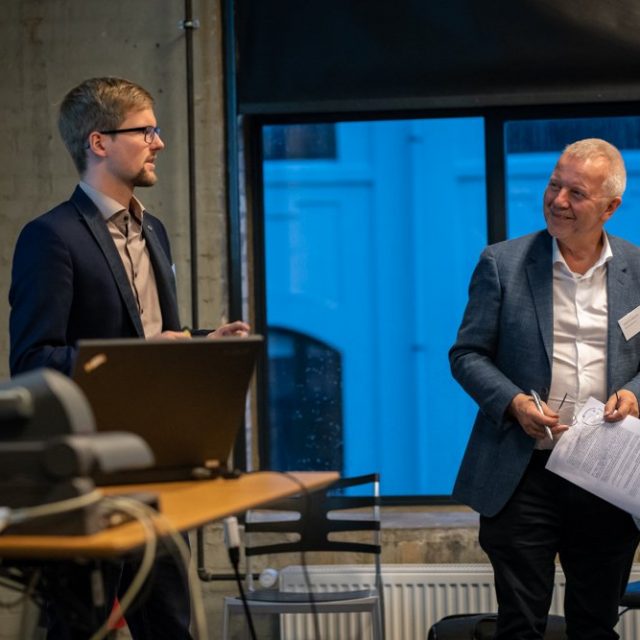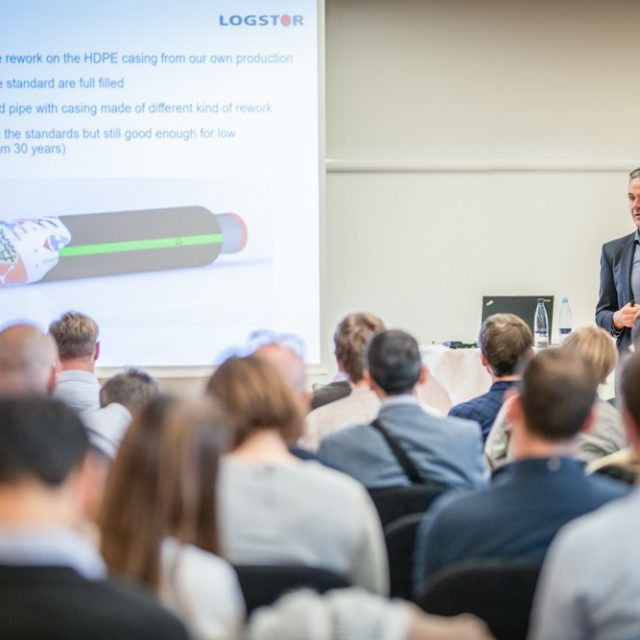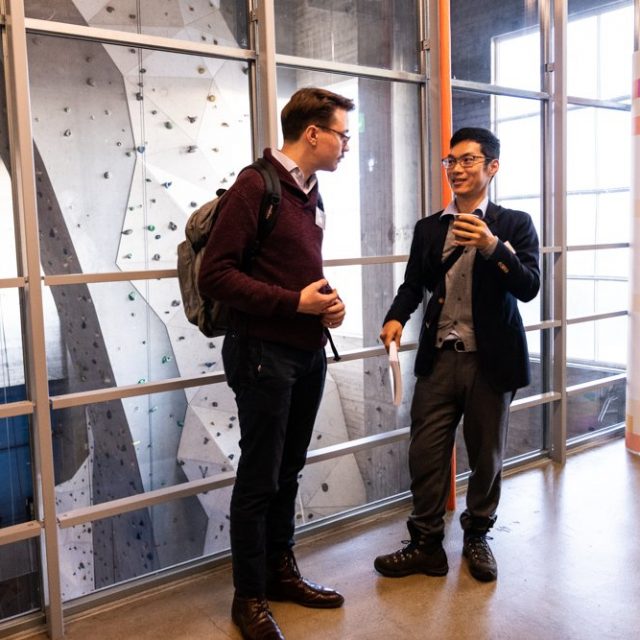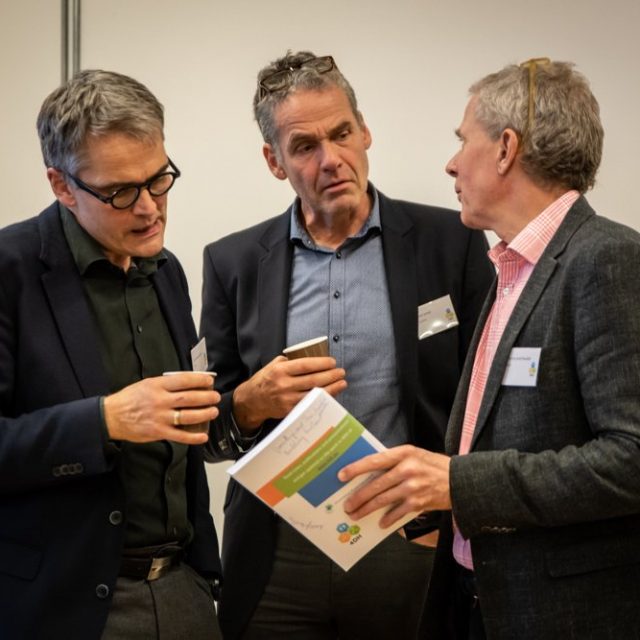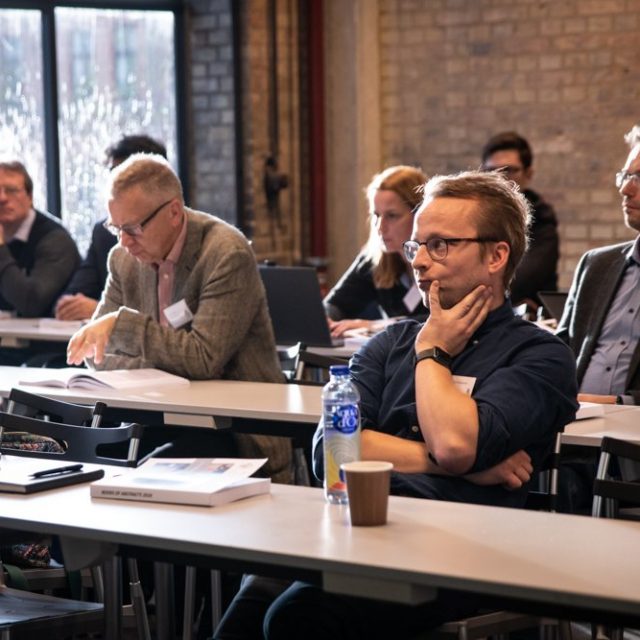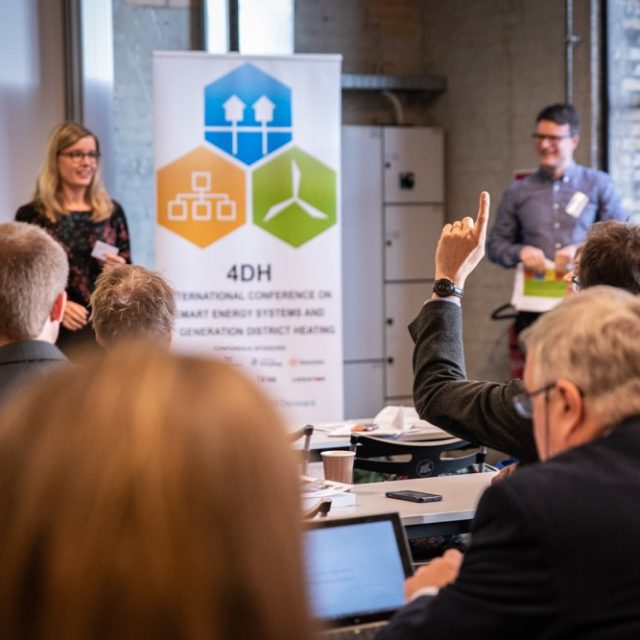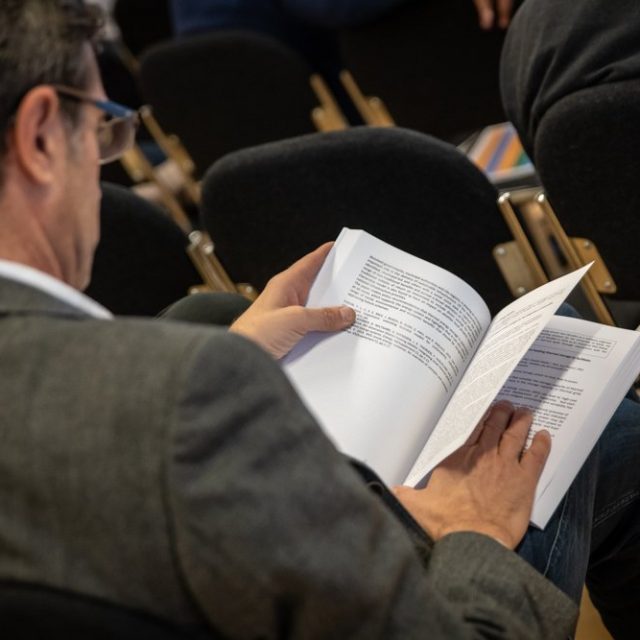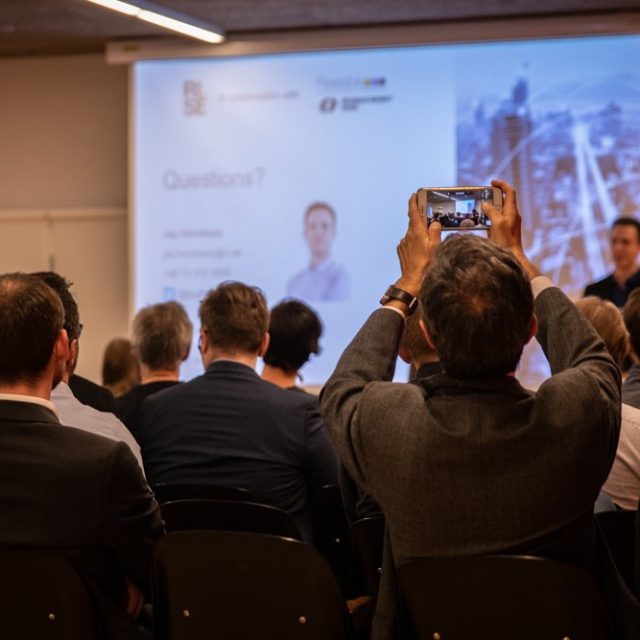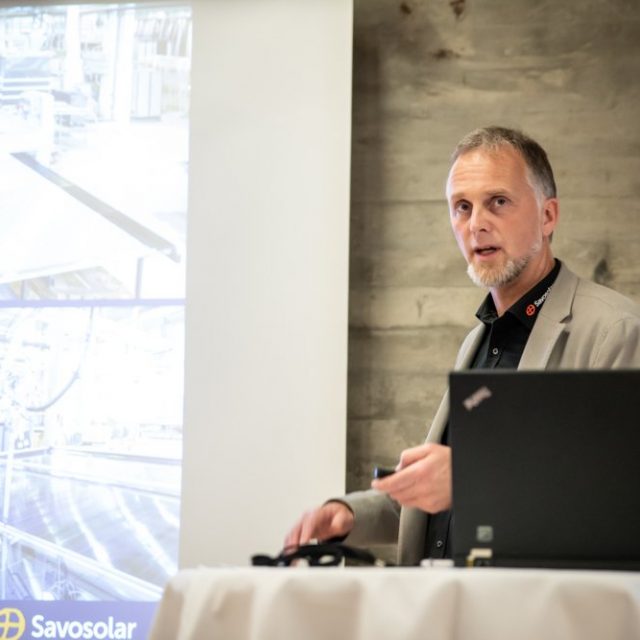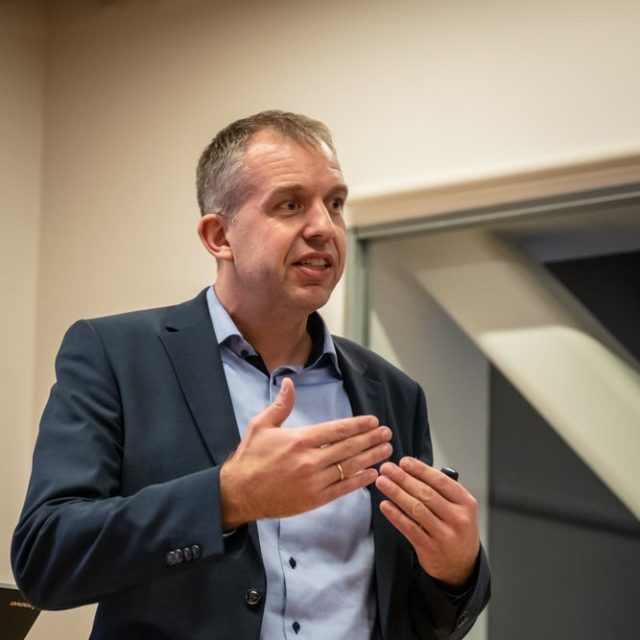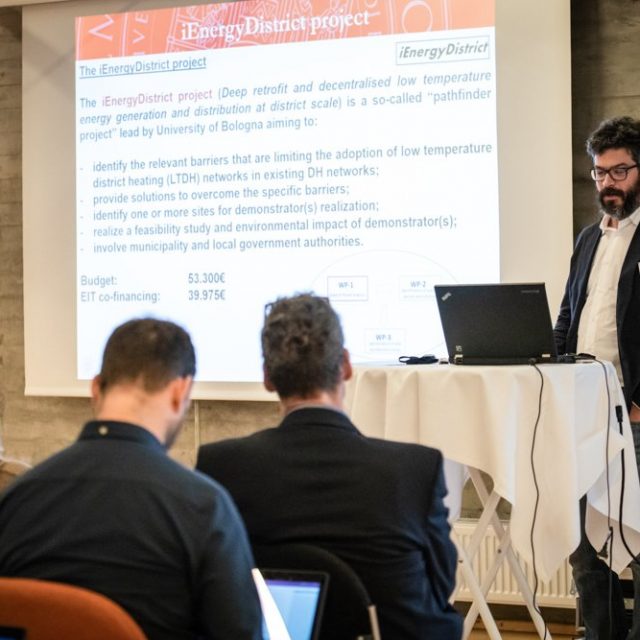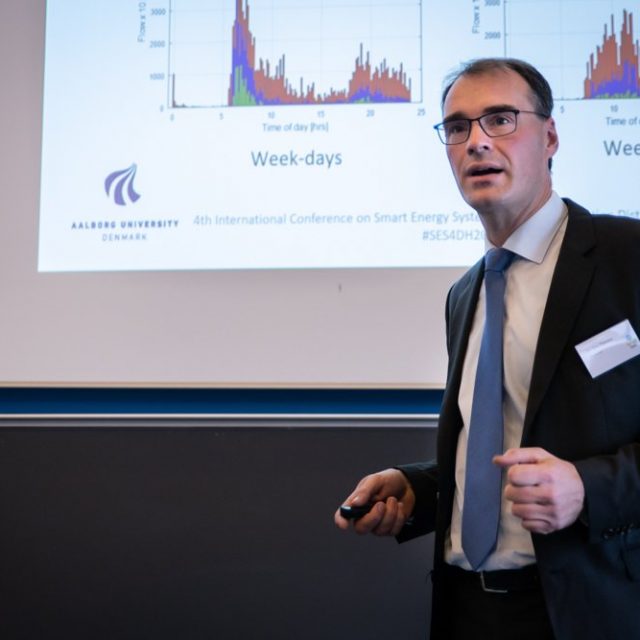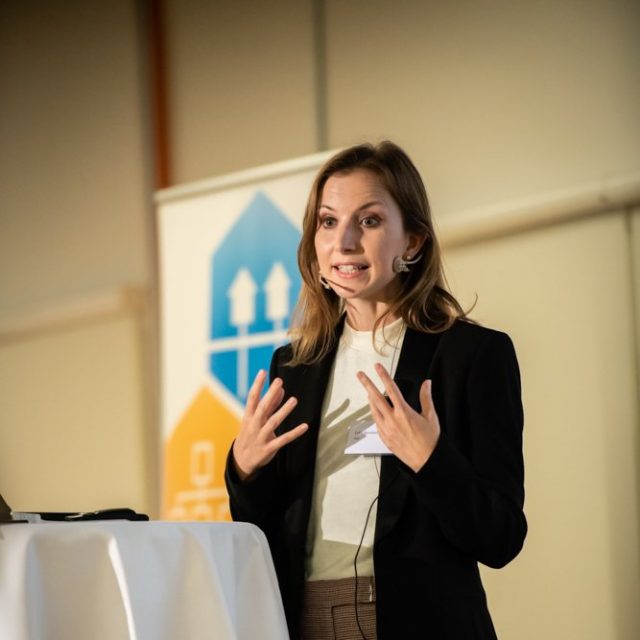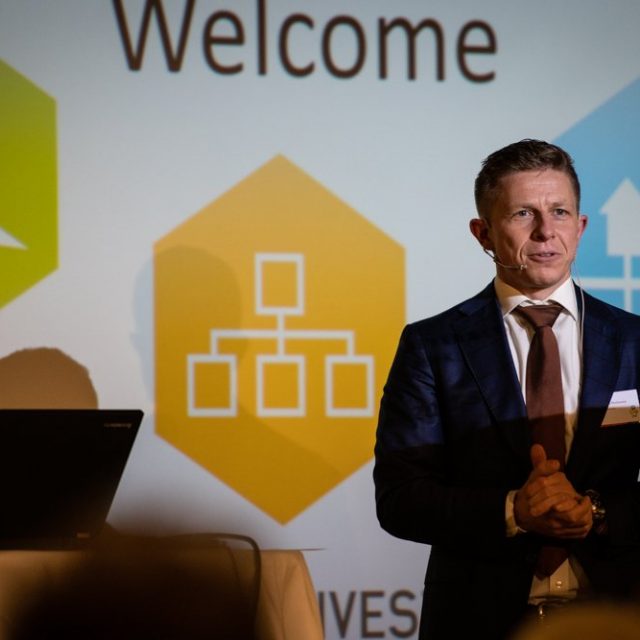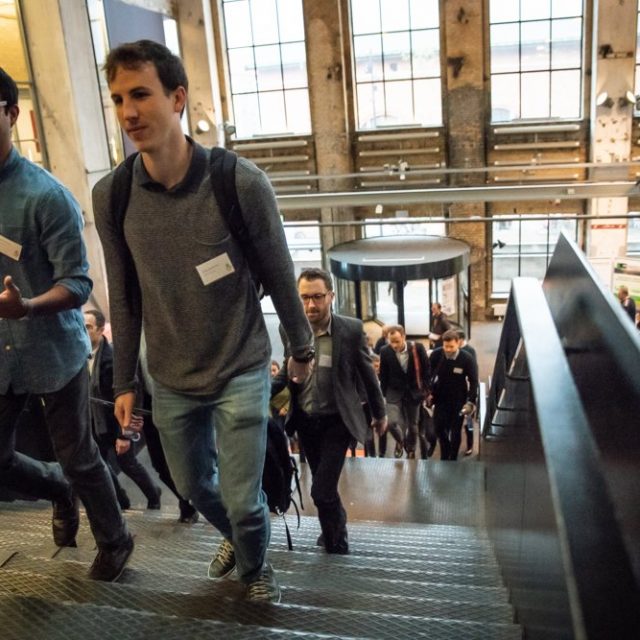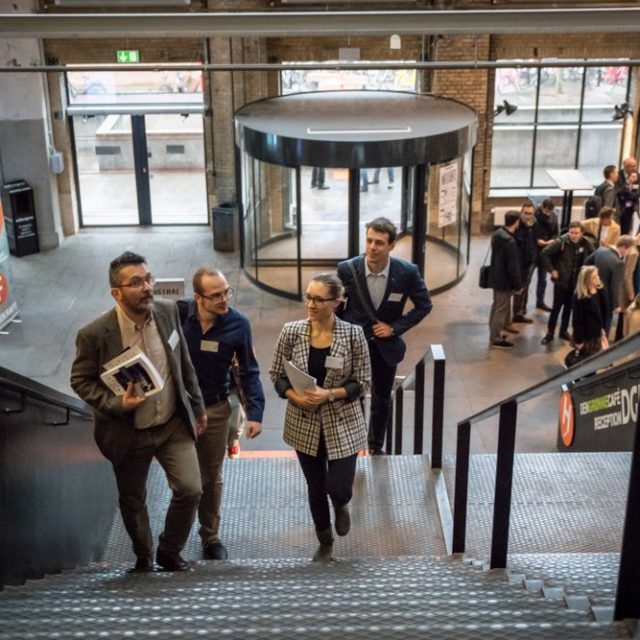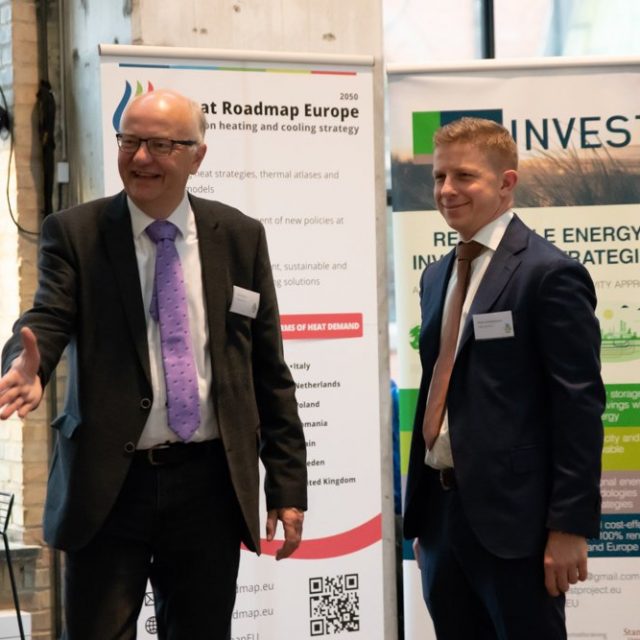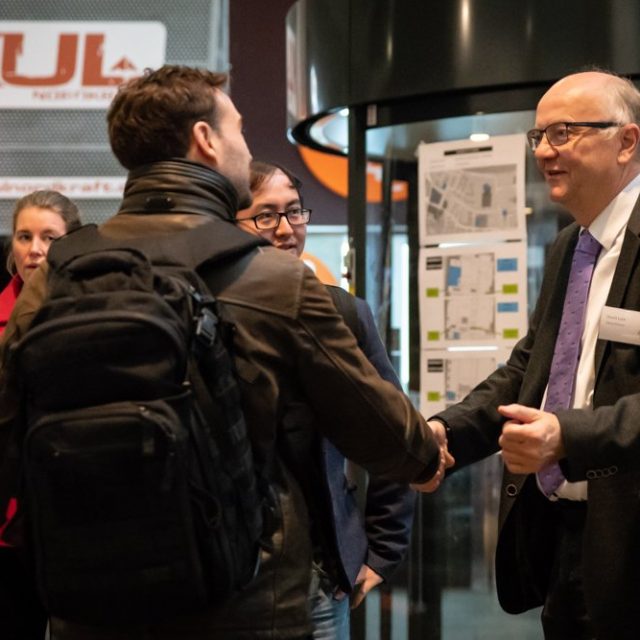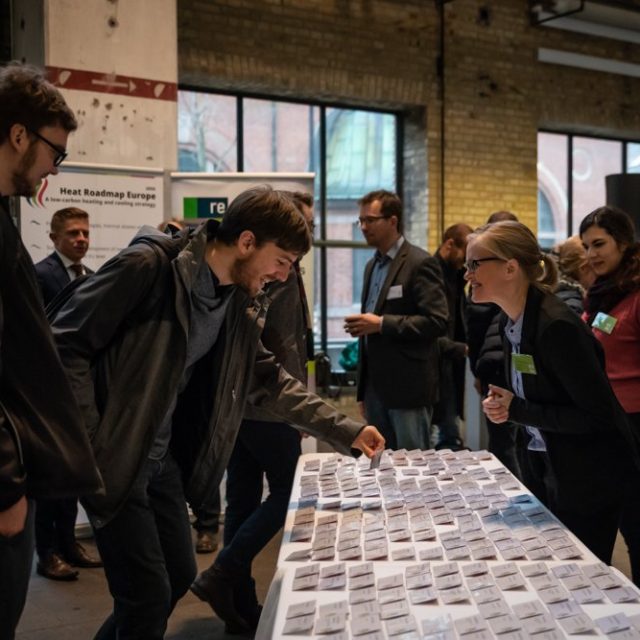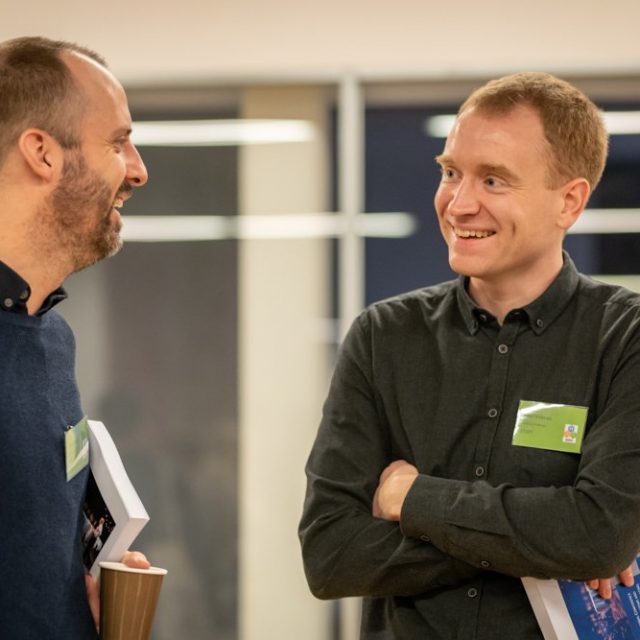
The 4DH Strategic Research Centre, the RE-INVEST project and Aalborg University invited researchers and experts from industry and businesses to the 4th International Conference on Smart Energy Systems and 4th Generation District Heating. This year’s conference took place from 13-14 November 2018 in Aalborg. With more than 130 interesting presentations, high-profile keynote speakers, exciting workshops and technical tours, the conference received a high level of interest. This year, we welcomed 320 participants representing 27 different countries. The aim of the conference was to present and discuss scientific findings and industrial experiences related to the subject of Smart Energy Systems based on renewable energy and future 4th Generation District Heating Technologies and Systems (4GDH).
Videos
Conference film from the 4th International Conference on SES4DH 2018
Status of 4th Generation District Heating Research and Results
Opening speech by Professor Brian Vad Mathiesen at the 4th International Conference on SES4DH 2018
Keynote presentation by Prof. Henrik Lund at the 4th International Conference on SES4DH 2018
Plenary keynote by Celia Martinez at the 4th International Conference on SES4DH 2018
Keynote presentation by Prof. Xiliang Zhang at the 4th International Conference on SES4DH 2018
Panel Debate at the 4th International Conference on SES4DH 2018
Keynote presentation by Prof. Mark Jacobson at the 4th International Conference on SES4DH 2018
Keynote presentation by Prof. Neven Duic at the 4th International Conference on SES4DH 2018
Keynote speakers
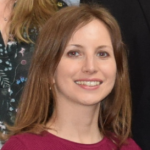
CELIA MARTINEZ gave a speech on District Energy in Cities: Global Perspective on Unlocking the Potential for District Heating and Cooling.
Celia Martinez is regional technical advisor at UN Environment. She is the focal point for Latin America and Africa of the District Energy in Cities Initiative, an Initiative of UN Environment that assists cities to unlock investment for the development of district energy systems.
Celia is Industrial Engineer and before joining UN Environment, she worked in the energy sector over six years as a project engineer in Spain, Germany and France.

MARK Z. JACOBSON gave a speech on Transitioning towns, cities, and countries to 100% clean, renewable energy for all purposes.
Mark Z. Jacobson is Director of the Atmosphere/Energy Program and Professor of Civil and Environmental Engineering at Stanford University. He is also a Senior Fellow of the Woods Institute for the Environment and of the Precourt Institute for Energy. He has served on an advisory committee to the U.S. Secretary of Energy.

XILIANG ZHANG gave a speech on District heating in China.
Xiliang Zhang is Professor and Director of the Institute of Energy, Environment and Economy at Tsinghua University and Deputy Director at the Tsinghua-Rio Tinto RES Research Centre. Professor Zhang has been a lead author of the IPCC Climate Change Assessment Reports.

NEVEN DUIĆ gave a speech on District heating and 4th generation district heating in Eastern Europe.
Neven Duić is Pofessor and Energy Management Chair at the Department of Energy, Power Engineering and Environment, at the University of Zagreb. He has organised a series of conferences on Sustainable Development of Energy, Water and Environment Systems and has been a member of organising, scientific and programming committees of more than 40 research conferences.

HENRIK LUND gave a speech on The Status of 4thGeneration District Heating: Research and Results.
Henrik Lund is Professor in Energy Planning at Aalborg University, Head of the 4DH Research Centre and Editor-in-Chief of ENERGY – The International Journal of Elsevier. He has more than 25 years of experience in research and involvement in Danish Energy Planning and Policy making. Among others, he has been involved in the making of the Danish Society of Engineers’ proposal for a future 100% Renewable Energy Plan for Denmark.

SVEN WERNER introduced and chaired the panel debate on The future role of district heating and 100% renewable energy systems.
Sven Werner is Professor of Energy Technology at the School of Business, Engingeering and Science, Halmstad University. Sven Werner carries out research about district heating for the future needs in both Sweden and across Europe. His knowledgeand research results have been visible in several scientific journals and reports, in textbooks and through numerous lectures. Sven Werner has communicated his research through various activities and presentations in many countries around the world.
Presentations
- Benedetto Nastasi: Synthetic fuels potential by Power-To-Gas integration at National level for enhancing energy independency
- Hanmin Cai: Fuel shift for improving urban integrated energy system operation and efficiency (Presentation is not available for download)
- Andrei David: Techno-economic analysis of electrofuel production in a Danish Smart Energy System
- Sara Bellocchi: On integrating electric vehicles into Smart Energy Systems: Italy and Germany in comparison
- Timo Kannengiesser: Optimization of Urban Energy Supply Systems Considering Various Sector-Coupling Options for Different Penetration Rates of Battery Electric Vehicles (Presentation is not available for download)
- Richard P. van Leeuwen: Integration of waste heat and renewables into district heating systems in East-Netherlands
- Hanne Kauko: Thermal storage and optimal control for improved utilization of industrial waste heat in district heating
- Alexandre Canet: Feasibility of Transporting Industrial Waste Heat Over Long Distances: A Case Study in South Wales (UK)
- Johannes Pelda: Methodology to evaluate and map the potential of waste heat from sewage water by using internationally available open data
- Marcello Aprile: District power-to-heat/cool complemented by sewage heat recovery
- Bernd Möller: A Global Spatial Model to Identify Opportunities for Local Smart Energy Systems
- Kamal Kuriyan: A combined spatial and technological model for the planning of district energy systems
- Joseph Maria Jebamalai: An automated GIS-based planning and design tool for district heating: Scenarios for a Dutch city
- Jakob Zinck Thellufsen: Geographical distribution of heat savings in a smart energy system
- Carsten Bojesen: Friction Reducing Additives in the Future District Heating and Cooling Systems
- Dirk Vanhoudt: Technological Solutions to Reduce District Heating Network Temperatures – the TEMPO Project
- Igor Krupenski: Development prospects for small low-temperature district heating networks
- Tobias Sommer: Lowering the pressure in district heating and cooling networks by alternating the connection of the expansion vessel
- Marco Pellegrini: Technological and non-technological barriers in the revamping of traditional district heating networks into low temperature district heating: an Italian case study
- Jan Eric Thorsen: Load shift experience with ULTDH booster substation for multifamily building
- Christian Holmstedt Hansen: Cost efficiency of district heating for low energy buildings of the future
- Kevin Michael Smith: Model predictive control of a heat-booster substation in ultra-low temperature district heating networks
- Pierre Vogler-Finck: Reducing supply temperature in existing buildings with an innovative advanced heating curve control technology
- Jens Møller Andersen: Lowering of return temperature in district heating systems by Integration between heating and ventilation systems in households
- Gijstbert Korevaar: Agent-based modelling for the thermal energy transition of natural gas dependent neighborhoods
- Søren Djørup: The Technical Rate of Substitution between Wind Power and Photovoltaics in a Smart Energy System
- Niels M. Westera: Exploring community acceptance of ownership models for district heating as an alternative to natural gas-based residential heating in a city in the Netherlands
- Daniel Møller Sneum: State of the art in the States: Applying an analytic framework for flexibility in US district energy systems
- David G. Barns: The value(s) of thermal storage
- Daniel Trier: Sector coupling and distributed energy storages for the integration of renewable energy sources
- Jay Hennessy: Thermal grid flexibility: a review of district heating thermal storage to facilitate flexibility
- Shalika Walker: Gas-free alternatives for existing buildings with the use of heat pumps and thermal storage – a case study (Presentation is not available for download)
- Tommy Rosén: System perspective on biogas use for transport and electricity production
- Nicolas Lamaison: Storage Influence in a Combined Biomass/Power-to-Heat Production Plant
- François Maréchal: Towards the 5th generation of district heating/cooling systems
- Henrik Pieper: Large-scale heat pump integration model: A case study of Tallinn district heating
- Gaétan Chardon: Absorption heat pumps in district heating networks: 4 operating modes
- Matteo Caramaschi: Novel Domestic Hot Water Microbooster Heat Pump in Ultra-Low Temperature District Heating
- Diego Hangartner: Heat pumps in district heating and cooling systems – Case studies for Switzerland
- Steen Schelle Jensen: Introducing SCADA for district heating distribution
- Matteo G. Prina: Creating optimal transition pathways from 2015 to 2050 towards low carbon energy systems using the EnergyPLAN software: methodology and application to South Tyrol
- Mostafa Fallahnejad: Impact of heating planning on the economic viability of District heating in Brasov-Romania
- Richard Büchele: Integrated strategic heating and cooling planning on regional level for the case of Brasov
- Julian Wruk: An optimisation model for smart distribution network planning
- Morten Hofmeister: Solar Thermal – innovative technology and essential energy source in smart energy systems
- Roman Geyer: Barriers and Opportunities for Large-Scale Heat Pumps in Austrian District Heating and Cooling Networks
- Olatz Terreros: Investigating heat pump pooling concepts in rural district heating networks in Austria
- Sylvain Quoilin: Aggregation of flexible domestic heat pumps for the provision of reserve in power systems
- Wiebke Meesenburg: Dynamic behaviour of large scale heat pumps and the implications for the potential to supply ancillary services – Experiences from EnergyLab Nordhavn
- Leif Gustavsson: Primary energy and cost implications of supplying district heat of different temperature levels to new residential areas
- Dorte Skaarup Østergaard: Heating of existing buildings by low-temperature district heating
- Øystein Rønneseth: Is it possible to supply Norwegian apartment blocks with 4th generation district heating?
- Kerstin Sernhed: Solutions and regulations to deal with legionella problems in district heating systems
- Anna Kallert: Effects of decreasing domestic hot water supply temperatures for the efficient energy supply of buildings using low-temperature supply concepts – Extrapolation to Germany
- Anna Volkova: Development of a user-friendly mobile app for the 4th generation district heating promotion at the national level
- Nadine Aoun: Load shifting of space-heating demand in district heating systems based on a reduced-order building model identifiable at substation level
- Kaisa Kontu: From partial optimization to overall system management – Analysis of district heating consumption data after consumers implementing demand response actions
- Sonja Salo: The Effect of Demand Response on Perceived Thermal Comfort in a District Heated Office Building
- Morten Karstoft Rasmussen: Customer classification based on heat load pattern recognition
- Ralf-Roman Schmidt: District heating and cooling networks in an integrated energy system context – approaches within the IEA DHC Annex TS3
- Salem Alsaleh: Comparative Analysis of District Cooling and Multiplicity Air-Conditioning Units – Case Study for Dubai
- Gabriele Cassetti: A methodology for tertiary buildings cooling energy need estimation: a case study in Marrakech
- Hironao Matsubara: Comparative analysis of building and area heat demand and renewable energy supply in Japan
- Dagnija Blumberga: Solar DH system sustainability and flexibility increase forecast via power-to-heat technology integration. System dynamic approach
- Jes Donneberg: Energy Hybrid Solution based on the Integration of Concentrated Solar Power
- Borna Doračić: Determining the feasibility of excess heat utilization in district heating system consisting of natural gas cogeneration and solar thermal
- Marcin Bugaj: Experimental study on the operating characteristics of a carbon dioxide transcritical heat pump combined with a single stage two-bed adsorption chiller and a PV installation in a low thermal district heating system: A case study (Presentation is not available for download)
- Peter Jorsal: Are Pre-insulated Pipe Systems according to the European Standards Over-engineered for Low Temperature Systems?
- Luis Sánchez-García: Reducing peak flow by use of plate heat exchangers for hot water preparation
- Aleksandr Hlebnikov: Lowering supply temperatures and its impact on the district heating system component parameters. Case study: town of Maardu, Estonia
- Johannes Küchle: Thermo-hydraulic implications of different design guidelines for 4th Generation District Heating Networks
- Jonas Hinker: A technology agnostic system platform for real options
- Esmir Maslesa: The role of Energy Management System for heating consumption in office buildings: a case study of the Danish Building and Property Agency
- Elisa Guelpa: Software for the optimal management of large district heating networks: a real application (Presentation is not available for download)
- Romain Lambert: Scaling up digital technology for district heating – experience from large scale implementations of peak power optimization (Presentation is not available for download)
- David Pearson: Network Characteristics to Optimise the Efficient Application of Ammonia in District Heating systems
- Dietrich Schmidt: District Lab – Experimental facility for innovative district heating systems on a community level
- Federico Bava: Recommendations for Combined District Heating and Cooling Networks
- Gašper Stegnar: Pathway for shallow geothermal energy potential in district heating systems development in Slovenia
- Bente Johnsen Rygg: The role of 4th generation district heating in a future energy system based on hydropower
- Roberta Roberto: Towards the integration of prosumers in district heating networks
- Gunnar Lennermo: Requirements for a prosumer facility
- Susana Paardekooper: The interplay between heat savings and district heating on a national level: an iterative approach
- Anders N. Andersen: The Danish triple tariff and the radically changing role of CHPs through the transition to a renewable energy system
- Daniela Guericke: A novel bidding method for combined heat and power units in district heating systems
- Lennart Merkert: Optimal scheduling of combined heat and power generation units using the thermal inertia of the connected district heating grid as energy storage (Presentation is not available for download)
- Sara Månsson: Faults in district heating substations
- Carsten Østergaard Pedersen: Reduce heat losses with low temperature zoning
- Oliver Martin-Du Pan: A methodology is proposed to reduce heat losses in UK district heating networks and challenging the fourth generation of district heating definition
- Jan van Deventer: Interoperability of Smart Energy Systems
- Alfred Heller: HEATman – Next generation District Heating concept
- Souman Rudra: Future district heating plant integrated with sustainable hydrogen production
- Casey Cole: Using machine learning algorithms to radically improve heat network performance (Presentation is not available for download)
- Asad Ashfaq: Optimisation of Low Temperature District Heating Networks using Machine Learning Methods
- Russell McKenna: Extending a building-scale optimisation model to low-temperature district heating systems
- Lisa Brange: Method for addressing bottleneck problems in district heating networks
- Andra Blumberga: Optimisation of energy efficiency measures in historic buildings
- Giorgio Cucca: Energy models for deep retrofitted homes using Energiesprong approach (Presentation is not available for download)
- Saleh Mohammadi: Performance analysis of photovoltaic thermal collectors (PV/T) integration with local heat grid configurations, A case study of Dutch renovated house (Presentation is not available for download)
- Martin Crane: Low cost domestic retrofit district heating optimisation
- Ahmad Said Galadanci: Building Energy Investigation: Understanding our buildings from an energy perspective
- Urban Persson: Urban waste heat recovery potential in EU28 – Mapping and geographical visualization
- Kenneth Hansen: Excess heat potential – Urban data in energy system scenarios analysis
- Kristina Lygnerud: Business models and contract arrangements of excess heat
- Chris Garside: Financing for excess heat
- Anders Dyrelund: Cost effective development of a low carbon energy system in cities
- Mario Potente Prieto: Multi-scenario simulation and energy – EXERGY analysis of a district heating network for a case study in the city of Vienna
- Patryk Chaja: Simulation of an alternative energy system for district heating company in the light of changes in regulations of the emission of harmful substances into the atmosphere
- Benedikt Pesendorfer: Coupled local district heating and electrical distribution grids: An Austrian case study
- Paolo Leoni and Alessandro Capretti: The TEMPO project: Challenges and Opportunities for Implementing Innovative Solutions for lowering the Temperatures in the District Heating Network of Brescia (Italy)
- Gorm Bruun Andresen: Cost sensitivity of optimal sector-coupled district heating production systems
- Wen Liu: The marginal pricing mechanism for a competitive wholesale district heating market-a case study in the Netherlands (Presentation is not available for download)
- Maciej Widziński: Comparison in an energy and economic aspects of a real district heating enterprise with a simulation model based on functioning heat and power plant (Presentation is not available for download)
- Muhannad Delwati: Hasselt case study, preliminary economic aspect and simulation
- Kun Zhu: Impact of CO2 prices in the decarbonization of coupled electricity and heating sectors
- Urban Persson: Heat Roadmap Europe: Heat distribution costs
- Tomislav Novosel: Heating demand and supply analysis – Development of an energy atlas
- Michiel Fremouw: PLANHEAT: mapping LowEx HC sources using public geodata
- Miguel Chang: Heat Roadmap Chile: District heating and cooling in the future Chilean energy system
- Nis Bertelsen: Review of historical and current European heat planning frameworks: heat market arrangements
- Louise Ödlund: District heating measures – Driving forces and implementation
- Britta Kleinertz: Heat Dispatch Centre – Symbiosis of different heat generation units to reach cost efficient low emission heat supply
- Toshihiko Nakata: Design and analysis of district heating system utilizing excess heat in Japan
- Cord Kaldemeyer: Integration of varying flow temperatures in unit commitment models of future district heating systems
- Hrvoje Dorotić: Impact of a waste heat integration on district heating systems’ multi-objective optimization results
- Vittorio Verda: Compact model for the simulation of thermal networks
- Peter Lorenzen: Flexibility in district heating systems – A suitable definition and model to describe the temperature and energy flexibility
- Marta Victoria: Modeling the future contribution of photovoltaics to low-carbon energy systems (Presentation is not available for download)
- Danica Maljkovic: Modelling influential factors of consumption in district heating systems
- Shobhana Singh: Physical modelling of heat pump for simultaneous space heating and hot water demand (Presentation is not available for download)
- Steffen Nielsen: Introduction to THERMOS
- Alis Daniela Torres: Transformation from SEAP to SECAP. Overview of THERMOS activities and the sustainable adoption roadmap of the tool
- Kamal Kuriyan: Energy system modelling concepts for district heating
- Joshua Thumim: Introduction and demonstration of the THERMOS tool
- Mark Z. Jacobson: Transitioning towns, cities, and countries to 100% clean, renewable energy for all purposes
- Xiliang Zhang: District Heating in China: status quo, challenges and perspective
- Neven Duic: District heating and 4th generation district heating in Eastern Europe
Supported by:






